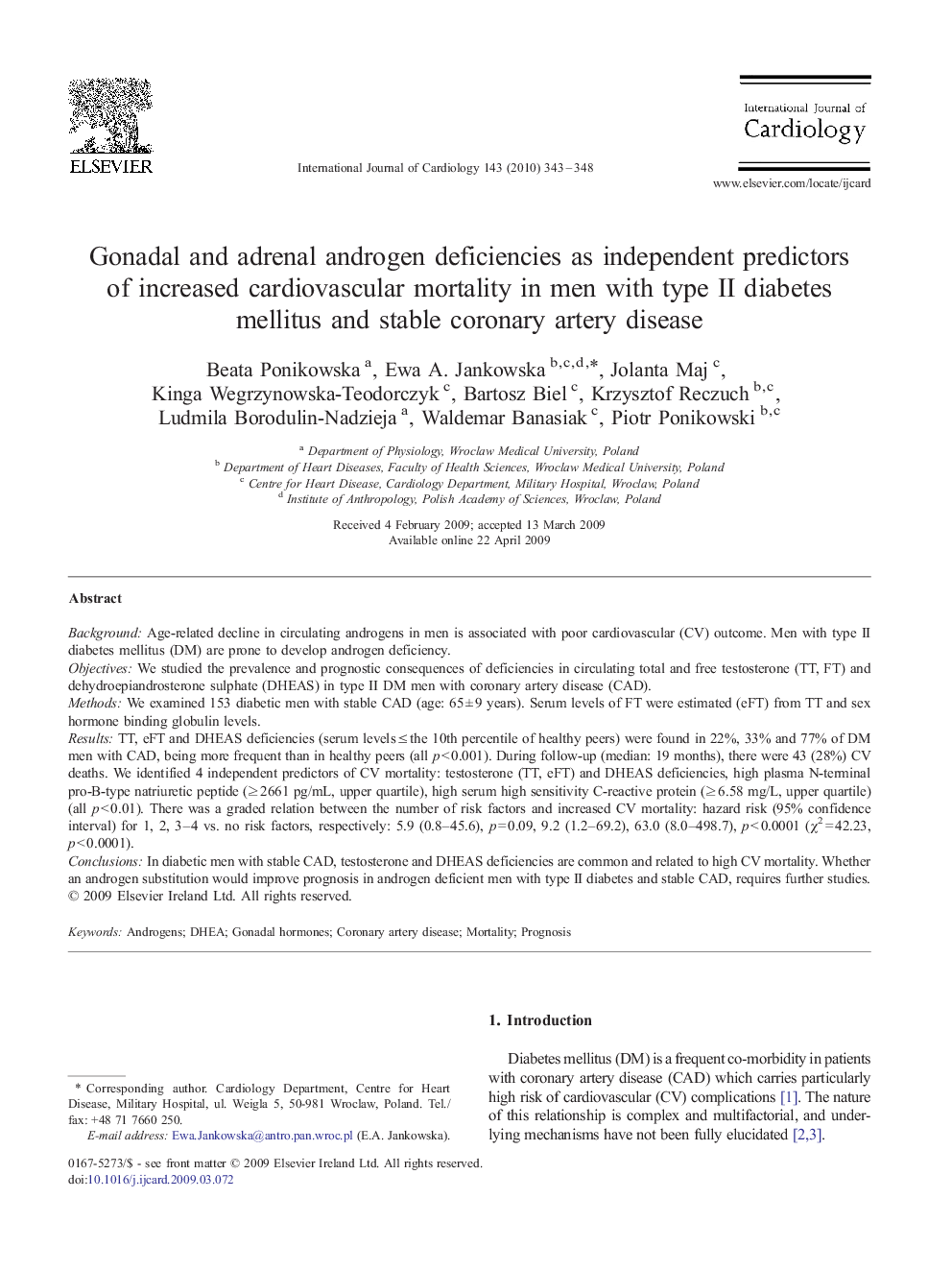| Article ID | Journal | Published Year | Pages | File Type |
|---|---|---|---|---|
| 2931244 | International Journal of Cardiology | 2010 | 6 Pages |
BackgroundAge-related decline in circulating androgens in men is associated with poor cardiovascular (CV) outcome. Men with type II diabetes mellitus (DM) are prone to develop androgen deficiency.ObjectivesWe studied the prevalence and prognostic consequences of deficiencies in circulating total and free testosterone (TT, FT) and dehydroepiandrosterone sulphate (DHEAS) in type II DM men with coronary artery disease (CAD).MethodsWe examined 153 diabetic men with stable CAD (age: 65 ± 9 years). Serum levels of FT were estimated (eFT) from TT and sex hormone binding globulin levels.ResultsTT, eFT and DHEAS deficiencies (serum levels ≤ the 10th percentile of healthy peers) were found in 22%, 33% and 77% of DM men with CAD, being more frequent than in healthy peers (all p < 0.001). During follow-up (median: 19 months), there were 43 (28%) CV deaths. We identified 4 independent predictors of CV mortality: testosterone (TT, eFT) and DHEAS deficiencies, high plasma N-terminal pro-B-type natriuretic peptide (≥ 2661 pg/mL, upper quartile), high serum high sensitivity C-reactive protein (≥ 6.58 mg/L, upper quartile) (all p < 0.01). There was a graded relation between the number of risk factors and increased CV mortality: hazard risk (95% confidence interval) for 1, 2, 3–4 vs. no risk factors, respectively: 5.9 (0.8–45.6), p = 0.09, 9.2 (1.2–69.2), 63.0 (8.0–498.7), p < 0.0001 (χ2 = 42.23, p < 0.0001).ConclusionsIn diabetic men with stable CAD, testosterone and DHEAS deficiencies are common and related to high CV mortality. Whether an androgen substitution would improve prognosis in androgen deficient men with type II diabetes and stable CAD, requires further studies.
